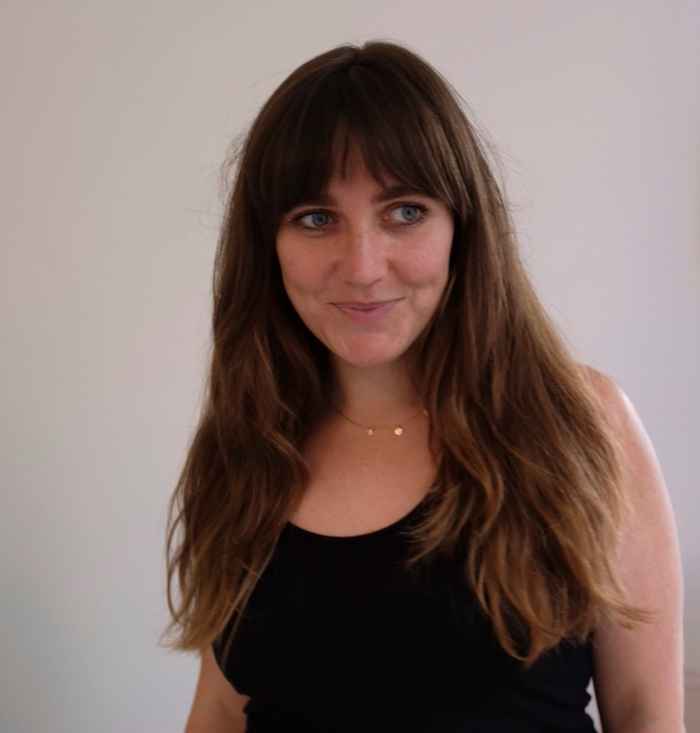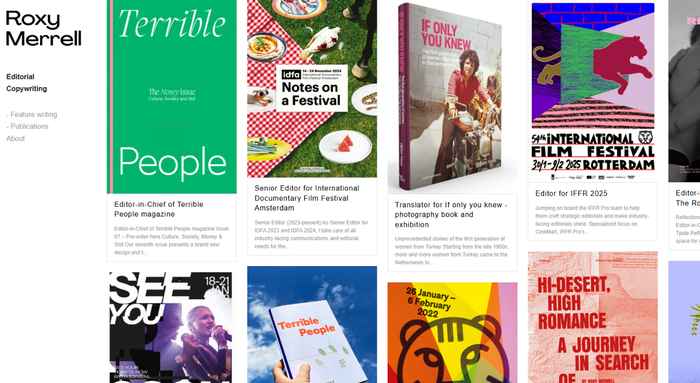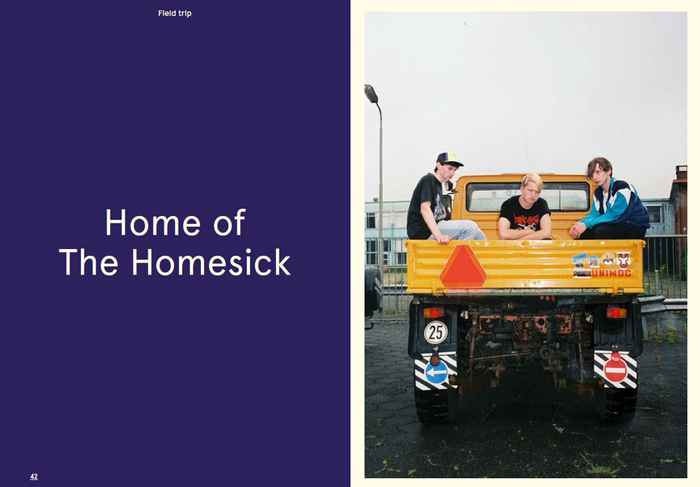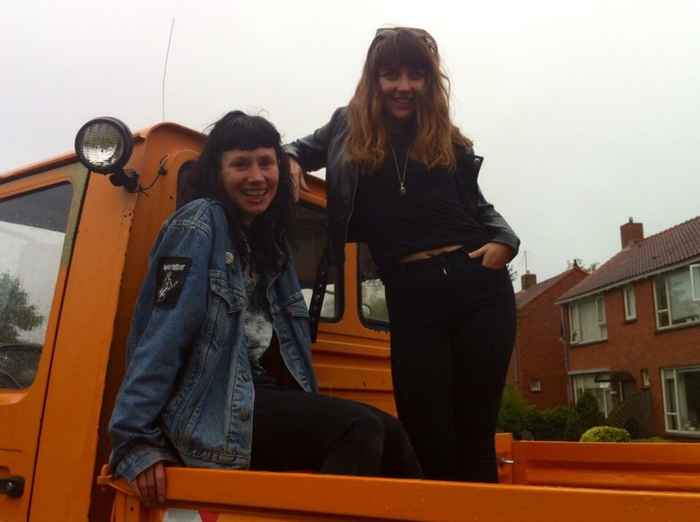"During my studies, I wrote about critical topics, which translated directly into what I do now: working with photography, books, documentaries, and artists who tell socio-political stories."
Roxy, writer and editor in the cultural sector

I work as a freelancer, so I run my own business as a writer and editor. You could call me a cultural writer, somewhere between creative writing and journalism.
I work freelance for a range of clients, including film and music festivals, photography projects, cultural organisations, and magazines. I'm also editor-in-chief of Terrible People, an independent magazine that's available internationally.

How I got here
When I started studying sociology, I had no idea I wanted to become a writer. I was quite young, just 21 when I was nearly finished with my master’s. At first, I considered doing a PhD, but I wasn’t sure if that path suited me.
My master’s thesis was about gentrification in Amsterdam’s Red Light District. At the time, the term wasn’t widely known yet. I wrote an opinion piece about it for Het Parool, a major Dutch newspaper, and it sparked a lot of discussion, even within the municipality. That’s when I realised: this is what I want to do.
The shift to writing in practice
After graduating, I wanted to learn how to write for a broader audience. Not just academic writing, but in a more accessible, creative way. That’s how I ended up at Subbacultcha, a music platform with its own magazine. What started as an internship turned into five years of work: I went from editorial intern to contributing editor, and eventually became editor-in-chief.
That’s where I really got to know the cultural sector. Since then, I’ve worked in this world for over ten years. A lot of it developed organically: I followed my interests, picked up new skills along the way, and found my own path.
What I still use from sociology
Two things I learned in my studies are still part of my daily work:
Strong interview skills
In sociology, you learn to listen, analyse, dig deeper, and allow for silence. That was immediately useful when I started interviewing musicians and artists.
It’s not just about asking good questions, it’s about understanding what lies beneath someone’s story. What are the underlying themes? What makes a story compelling? You learn to think in layers, ask sharp questions, and recognise meaning in the details.
Translating ideas for a wider audience
One of my biggest clients is IDFA, the International Documentary Film Festival Amsterdam. I write their press releases and translate their film programme into texts that are both readable and engaging for a broad audience.
These texts appear in media outlets like de Volkskrant, as well as international film media like Variety and Screen Daily. For that, you need strong writing skills, but also a deep understanding of what documentaries are really about: systemic issues, identity, global themes. My sociological background helps me a lot with that.


So, what can you do with sociology?
Many people wouldn’t immediately associate my job with sociology. I also spent a long time wondering: what can you actually do with sociology?
But sociology gives you a solid foundation: observing, analysing, doing research, seeing connections, understanding systems. You can use those skills in all kinds of fields, from policy and consultancy to the arts, data analysis or media. Even if the word sociologist doesn’t appear in the job description.
My advice for students
Thinking about studying sociology? My advice: follow your interests. What are you curious about? What do you want to understand better?
Also think about what you enjoy doing: writing, analysing, having conversations? For me, it’s all about the combination of topics that interest you and the skills you develop along the way.
During my studies, I wrote about critical topics like gentrification and urban sociology. That interest translated into what I do now: working with photography, books, documentaries, and artists who tell socio-political stories.
See my work
Curious? You can check out my portfolio here: www.roxymerrell.com